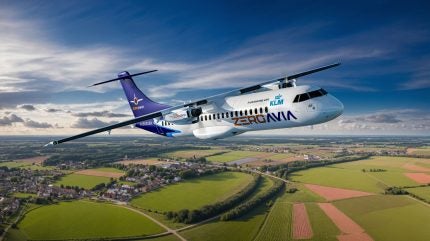
KLM Royal Dutch Airlines has formed a partnership with ZeroAvia to plan a demonstration flight testing the use of liquid hydrogen as a fuel for large regional turboprop aircraft.
The flight, planned for 2026, will be powered by ZeroAvia’s ZA2000 hydrogen-electric engines, which use hydrogen in fuel cells to generate electricity to power motors for the plane’s propellers.
Maarten Koopmans, managing director of KLM subsidiary airline Cityhopper, said: “KLM aims to be a front-runner in the journey towards a more sustainable future in aviation. That’s why we actively support and encourage innovation to drive industry change.”
KLM said it will now identify an “optimal airport pair” to conduct the initial A-B flight demonstration and work on attaining the regulatory permits necessary to fly and ensure a supply of liquid hydrogen fuel.
The partnership highlights ZeroAvia’s leading role in the development of hydrogen propulsion systems for aircraft, and adds to the manufacturer’s growing support from major companies such as American Airlines and Airbus.
Sergey Kiselev, ZeroAvia’s chief business officer, said: “The world’s largest airlines are diving in to explore hydrogen-electric as a potential solution with increasing seriousness.
“We can’t wait to work with KLM, being an airline with such rich history, as we look towards a clean future for the industry.”
Development of the hydrogen-electric engines, which emit only water vapour, is in line with KLM’s sustainability strategy aiming to have 64% of its fleet consist of new-generation aircraft by 2028, and the IATA net zero target of 2050.
The partnership also comes shortly after a report from the International Council on Clean Transport calling for accelerated development of net-zero aircraft, including hydrogen, electric, and 100% SAF powered planes.



